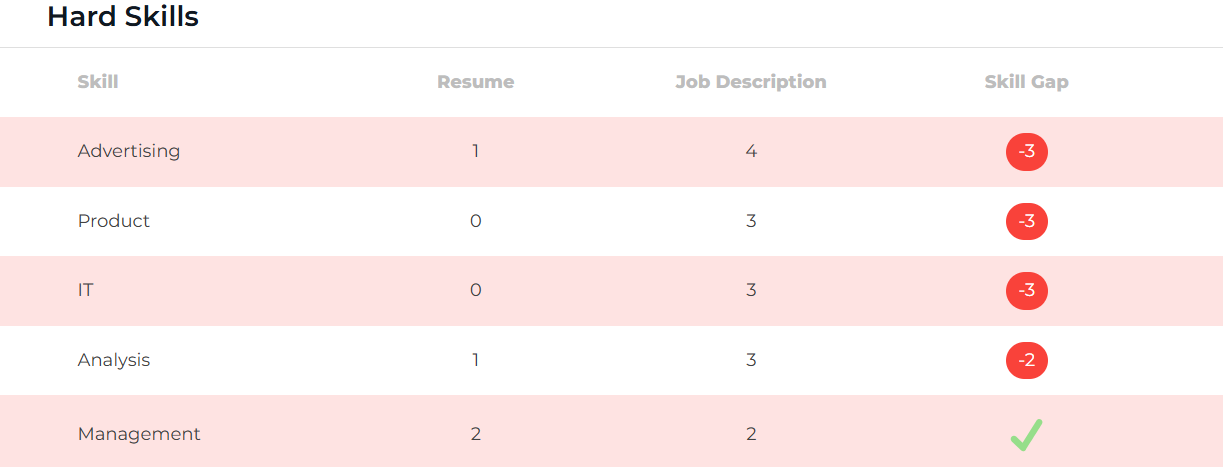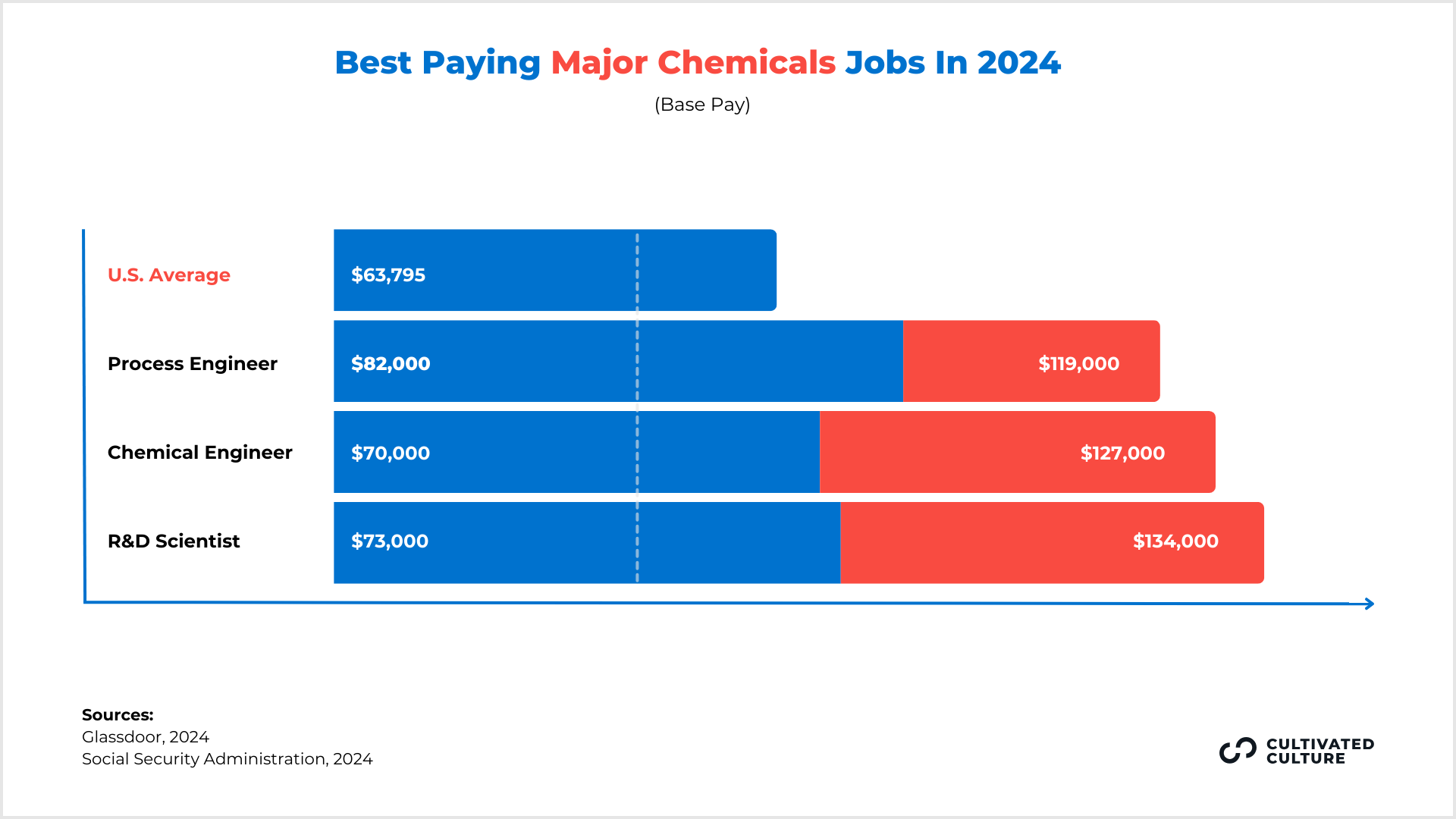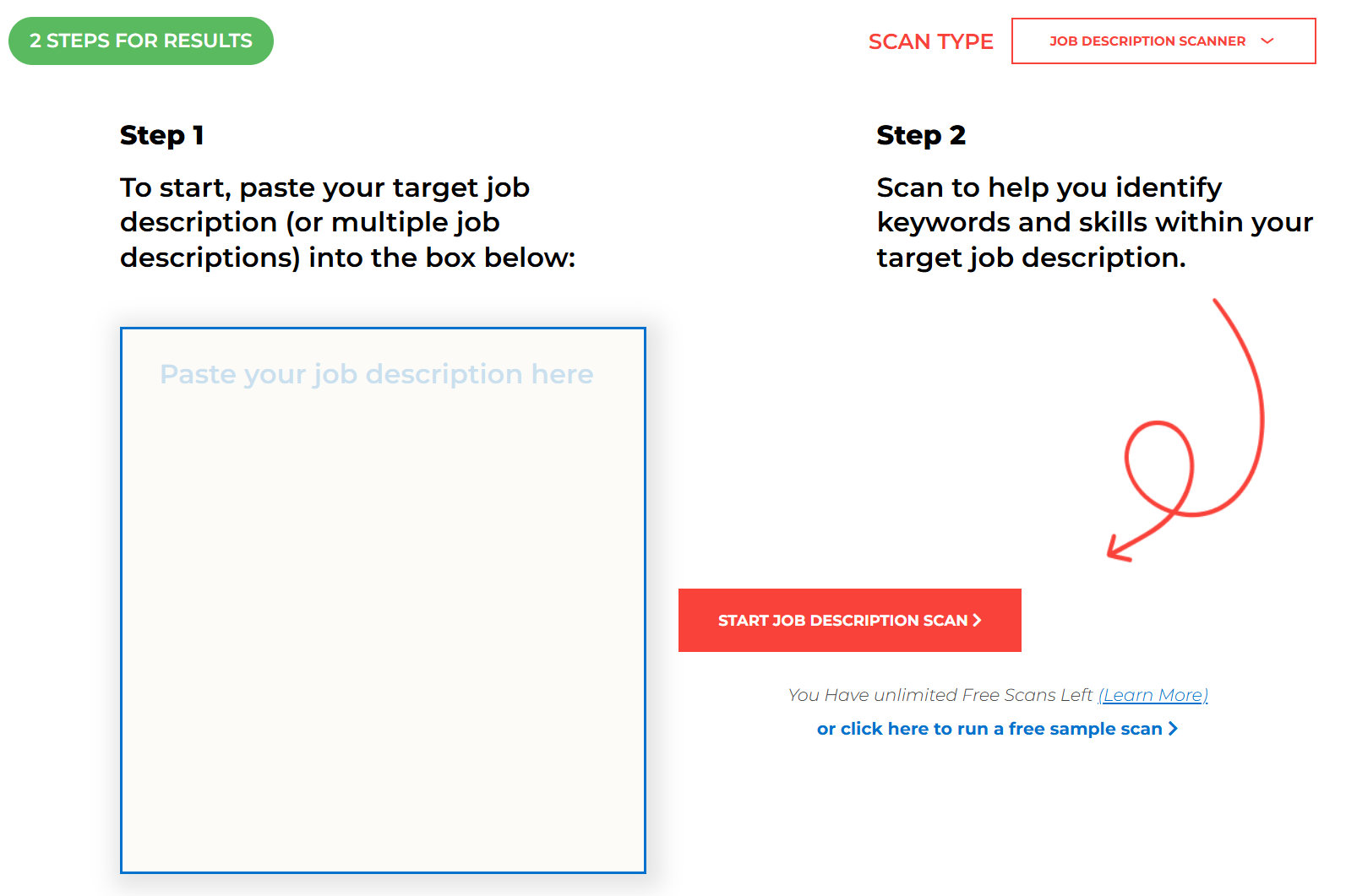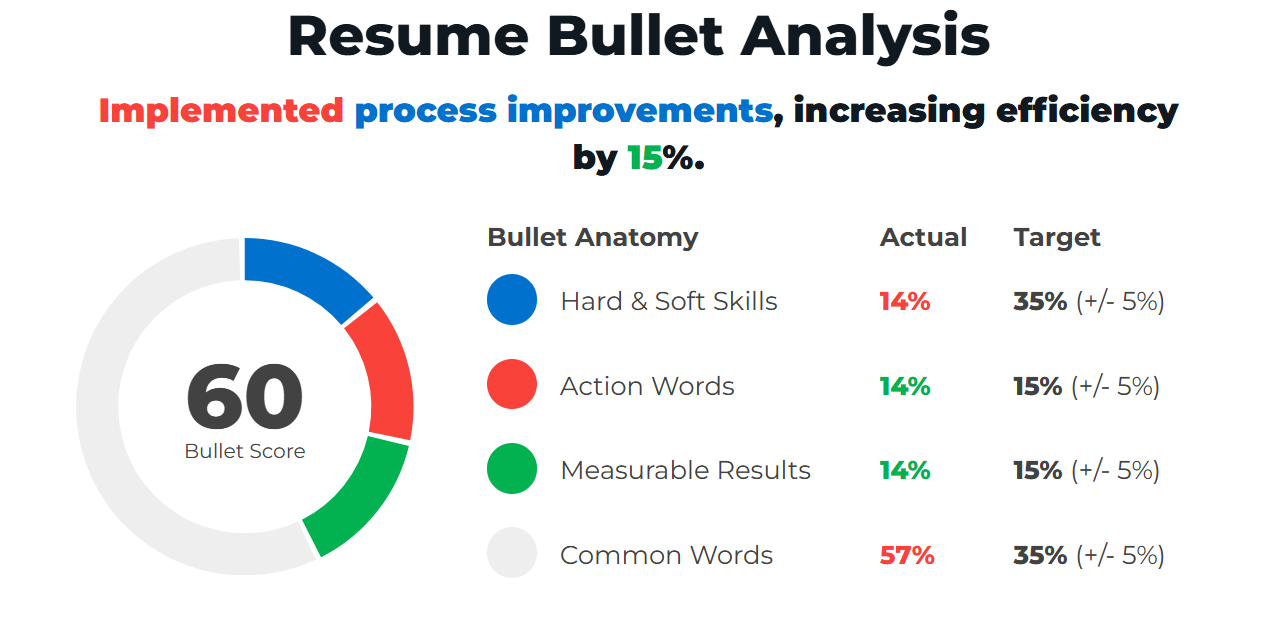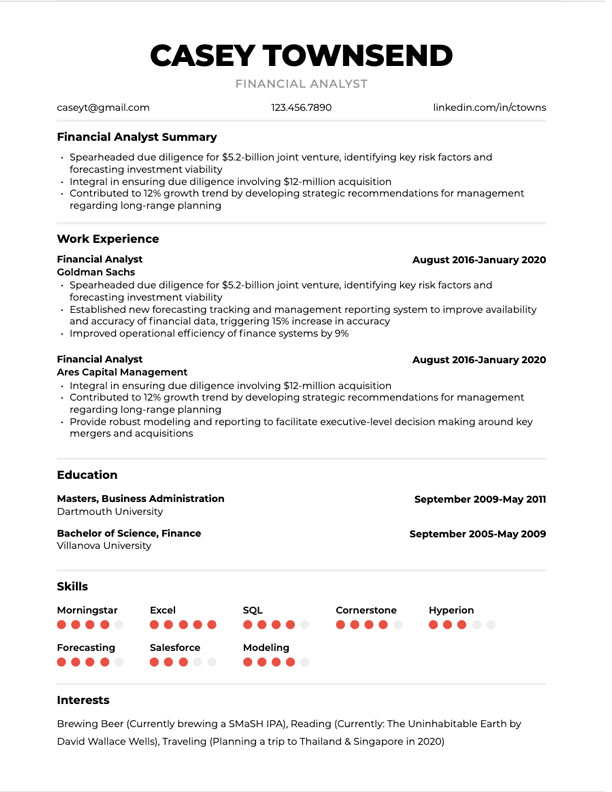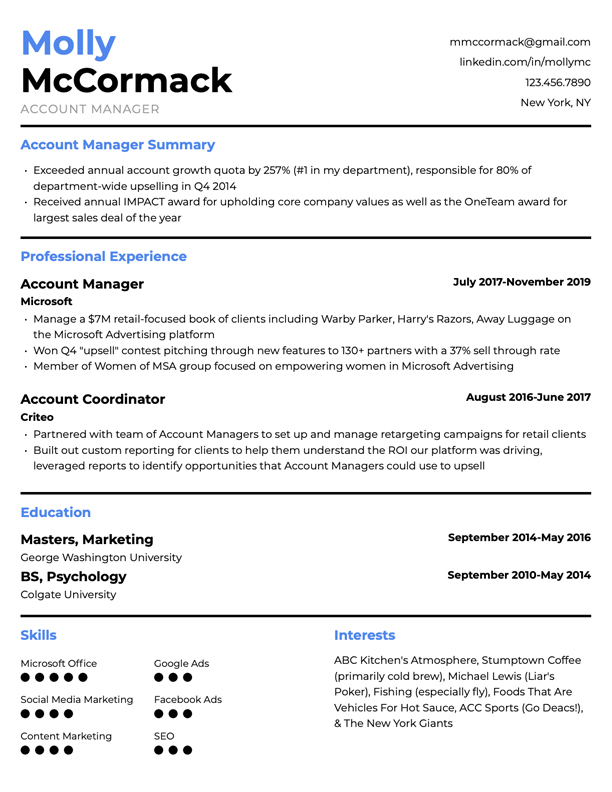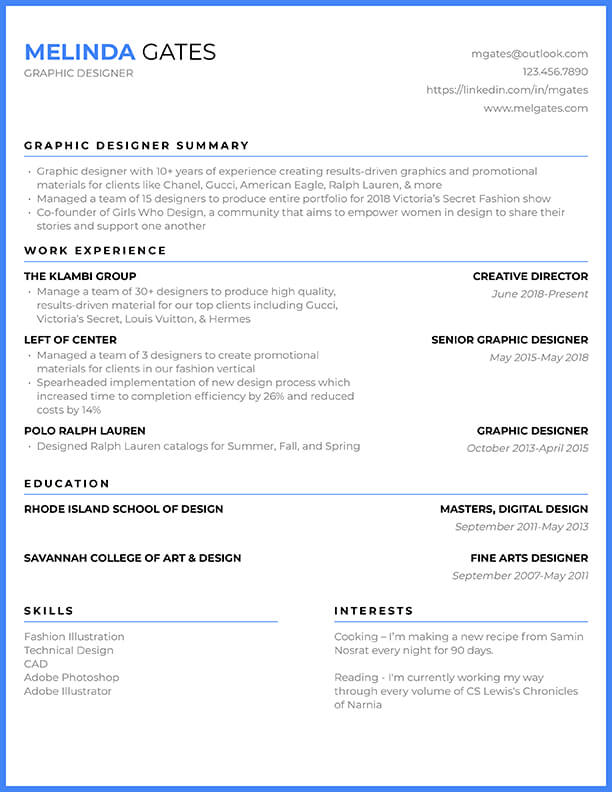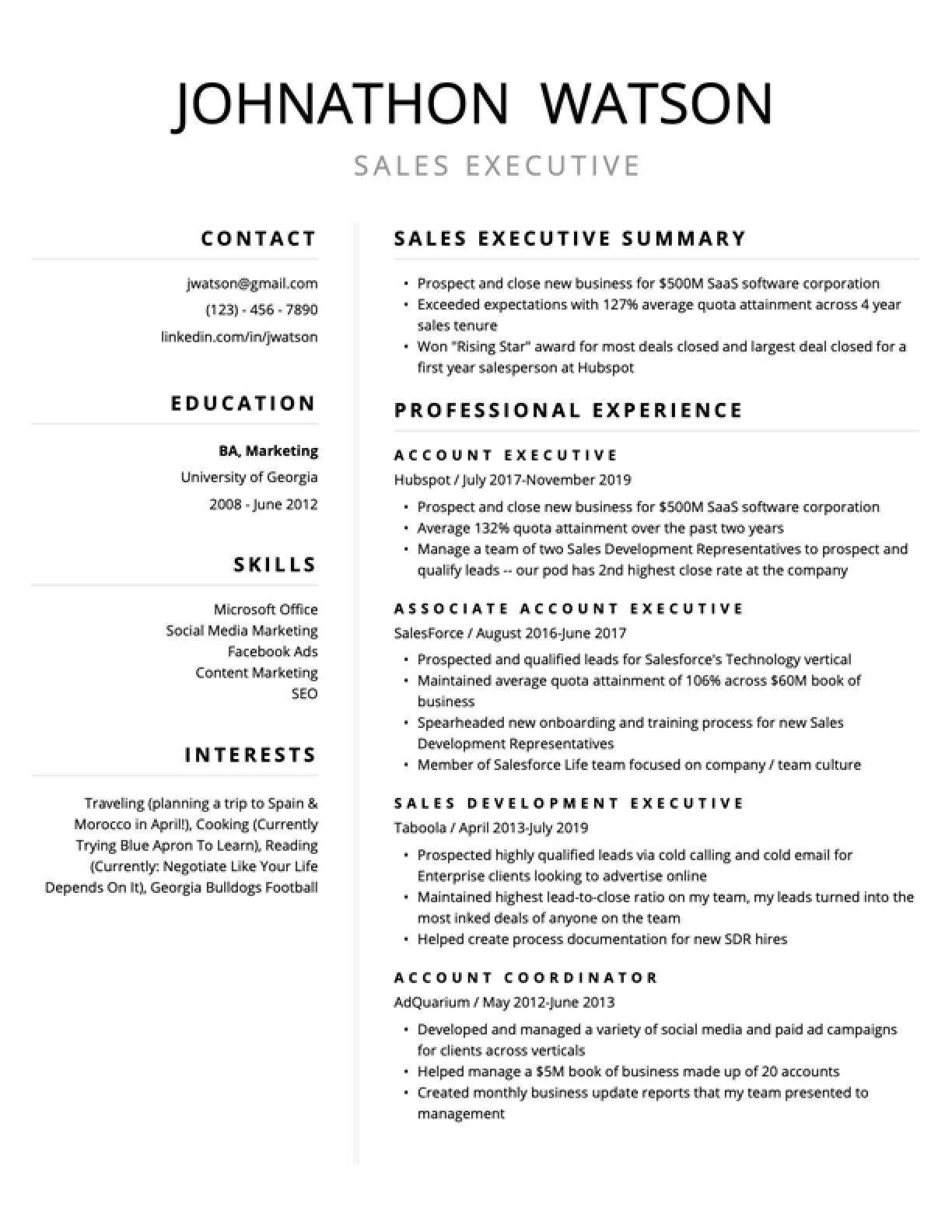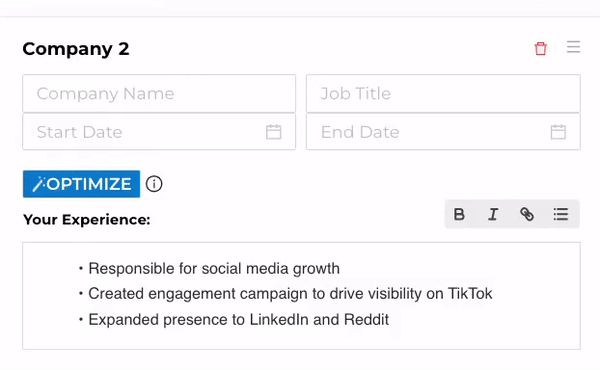If you’ve landed on this article, you probably have tons of questions about working in the major chemicals industry and are wondering if this is a career path worth pursuing.
Good news – you have come to the right place! Whether you're an entry-level professional or well-established in another industry and looking for a career change, this article is for you!
In this article, we’ll be covering the following topics:
- What Is The Major Chemicals Industry?
- What Companies Are In The Major Chemicals Field?
- What Are The Job Options In Major Chemicals?
- What Are The Skills Needed For Major Chemicals?
- What Do Major Chemicals Jobs Pay?
- Is Major Chemicals A Good Career Path? (Our Verdict)
- How To Build A Job-Winning Major Chemicals Resume
Let’s dig in!
What Is The Major Chemicals Industry?
Major chemicals consists of the production of substances used across different industries, such as agriculture, healthcare, construction, and consumer goods.
The chemicals produced in this industry can include raw materials for manufacturing, industry chemicals, and specialty chemicals used in highly specific applications.
What Companies Are In The Major Chemicals Field?
The major chemicals industry is composed of a variety of companies that produce a range of chemicals. Here are some examples from different areas:
- Agricultural Chemicals: Companies like BASF, Dow Chemical, and Syngenta produce chemicals used in pesticides, herbicides, and fertilizers.
- Industrial Chemicals: Companies like LyondellBasell, ExxonMobil Chemical, and Eastman Chemical Company focus on producing plastics, resins, and other industrial chemicals.
- Specialty Chemicals: Firms like DuPont and Clariant produce chemicals used in electronics, coatings, and personal care products.
- Consumer Chemicals: Companies like Procter & Gamble and Unilever produce chemicals used in household cleaning products and personal care items.
These companies play crucial roles in research, production, and distribution to ensure a steady supply of chemicals for various industries.
What Are The Job Options In Major Chemicals?
When looking for jobs in the major chemicals industry, you can work in roles that are involved in the sector itself—such as taking a position in manufacturing or research—or work in a supporting role, like finance or marketing.
Let’s take a look at the most common job options in the field.
Jobs In Research & Development (R&D)
R&D roles focus on developing new chemical products or improving existing ones. Common roles in this area include:
- Chemical Engineer: Develops processes for large-scale chemical production and oversees manufacturing efficiency.
- R&D Scientist: Conducts research to discover new chemical formulations and applications.
- Lab Technician: Supports scientists and engineers by conducting experiments and tests on new chemicals.
Jobs In Manufacturing
Manufacturing roles ensure that chemicals are produced safely and efficiently. Common roles include:
- Process Engineer: Optimizes manufacturing processes to ensure efficient production of chemicals.
- Production Supervisor: Oversees daily operations in chemical plants to ensure production goals are met safely.
- Safety Manager: Ensures compliance with health and safety regulations in the production environment.
What Are The Skills Needed For Major Chemicals?
Some jobs in major chemicals require extensive graduate education and experience. However, education and experience aren't the only criteria you need to take a position in this industry. Most roles also require specific skills.
Learning the skills required for each position is very important. You might have to address some skill gaps or you may already have well-developed skills that you can leverage as you seek a new role.
Here are the required skills for the most common roles in the major chemicals industry:
Entry-Level Roles:
- Technical Knowledge: A strong understanding of chemistry, chemical processes, or materials science is crucial for many roles.
- Safety Awareness: Following strict safety protocols is essential when working with chemicals.
- Analytical Skills: The ability to analyze data and test results is important for R&D and manufacturing roles.
Mid-Senior Manager Roles:
- Leadership: The ability to manage and motivate teams across research, production, and sales departments.
- Strategic Thinking: Developing long-term strategies for product development and market expansion.
- Project Management: Coordinating the development, testing, and production of new chemical products.
Mid-Senior Technical Roles:
- Product Development Expertise: Deep knowledge of chemical properties, manufacturing processes, and material behavior.
- Regulatory Compliance: Familiarity with environmental and safety regulations affecting chemical production.
- Data Analysis: Using data to improve product quality, production efficiency, and safety standards.
Finding Your Fit With Major Chemicals Roles
Want to find out if you are the right fit for a specific role?
We've got you covered.
Here's a simple, step-by-step guide to find out if you have the skills to take a new position in the industry!
- Head over to LinkedIn and search for your target role.
- Copy the job description of the role that sparked your interest.
- Head over to ResyMatch.io (or use our shortcut below)
- Grab a copy of your most updated resume.
- Upload your resume on the left side.
- Paste the job description on the right side.
- Hit “Start Resume Scan.”
Boom! ResyMatch will compare and score your resume versus the job description and identify skill gaps.
ResyMatch will also provide best practices you can use to improve your resume and will ensure that your resume is ATS compliant (ATS is a software that recruiters use to track candidates through their hiring process).
Use our shortcut below to get started:
What Do Major Chemicals Jobs Pay?
Now that we’ve covered the most common jobs in the major chemicals industry, you might be wondering how much these roles pay.
To answer this question, we’ll turn to one of our favorite tools for salary research: Glassdoor.
Glassdoor is one of the world’s top job and recruiting websites where users can anonymously provide information about their companies – including their current salary. Glassdoor provides an average salary range for various roles based on the information sent by its users.
According to Glassdoor, the base salary for the most common major chemicals industry jobs in 2026 are:
- Chemical Engineer: $70K – $127K / year base pay (USD)
- R&D Scientist: $73K – $134K / year base pay (USD)
- Lab Technician: $39K – $53K / year base pay (USD)
- Process Engineer: $82K – $119K / year base pay (USD)
- Production Supervisor: $56K – $82K / year base pay (USD)
- Safety Manager: $64K – $98K / year base pay (USD)
Best Paying Jobs In Major Chemicals Compared To The Average U.S. Salary In 2026
Now, let's check what that looks like compared to the average U.S. salary.
According to the Social Security Administration, the average salary in the U.S. is $63,795.
This is what the best-paying jobs in the major chemicals industry look like when we put them in perspective:
Process Engineer, Chemical Engineer, R&D Specialist are among the highest-paying roles in the major chemicals industry, with an earning potential of up to 110% higher than the U.S. average.
Is Major Chemicals A Good Career Path? (Our Verdict)
Major chemicals is a good career path for those interested in working with cutting-edge technologies, solving global challenges, and improving manufacturing processes across industries.
Companies like BASF, DuPont, and Dow Chemical lead the field, offering opportunities for professionals in R&D, manufacturing, and business development.
If you are interested in a fast-paced, high-impact industry with opportunities for growth, then major chemicals could be a strong career choice.
How To Build A Job-Winning Major Chemicals Resume
Here's a fact most people don't usually realize: you don't need traditional experience to take on a new role.
You can leverage your unique background, experiences, and skills for nearly any position, as long as you sell it.
Think about your resume as an advertisement for yourself. Like any ad, you want it to be compelling and visually attractive, right?
That's exactly what you will do with your resume!
1. Leveraging The Best Keywords For Your Target Role
Remember ResyMatch.io, that resume and job description scanner tool we mentioned earlier in this article?
We first showed you how you can scan and compare your resume with your target job description to find out how your skills match the role.
However, if you don't have a resume yet, you can still get great insight from this tool by running a job description scan.
Here's how: head over to ResyMatch.io and, in “Scan Type,” select “Job Description Scanner.” Then, copy the job description for your target role and paste it into the box on the left.
Skim through the list to get ideas for keywords you can leverage on your resume.
2. Writing Compelling Resume Bullets
You'll want your resume bullets to have just the right amount of hard and soft skills, action words, measurable results, and common words.
For example, a compelling major chemicals industry resume bullet for someone applying for a Chemical Engineer role might look something like this:
Implemented process improvements, increasing efficiency by 15%.
This bullet focuses on specific hard and soft skills, while also showcasing measurable results.
To help you write the perfect resume bullet, we've created ResyBullet.io, a free resume bullet analyzer that helps you write your resume in a way that grabs attention and illustrates value. Simply copy and paste your resume bullet below to begin your analysis:
ResyBullet will analyze and score your resume bullet and give you actionable insights for improvement.
Here's how our resume bullet scored on ResyBullet:
If you're a visual learner, check out our video that walks you through the step-by-step of writing a crazy-effective resume bullet:
3. Make Your Resume Visually Appealing
The last step is to take all of your content and apply it to a layout that is both easy to read and visually appealing. We recommend using a resume template so you can save the time you would normally spend designing your resume.
You can use ResyBuild.io, a free resume builder, to easily build and customize your resume in no time.

Free Job-Winning Resume Templates, Build Yours In No Time.
Choose a resume template below to get started:
Choose from 8 proven templates and easily create, edit, and customize your resume. ResyBuild's AI assistant also helps you craft personalized, job-winning bullets in a single click. Simply add your experience, hit “Optimize”, and watch the magic happen.
Ready To Pursue A Major Chemicals Career Path?
Then check out our No Experience, No Problem course and access a proven framework for building the skills and results you need to break into a new industry!



















